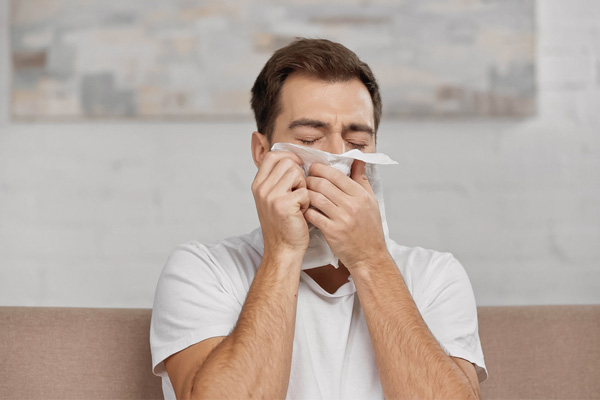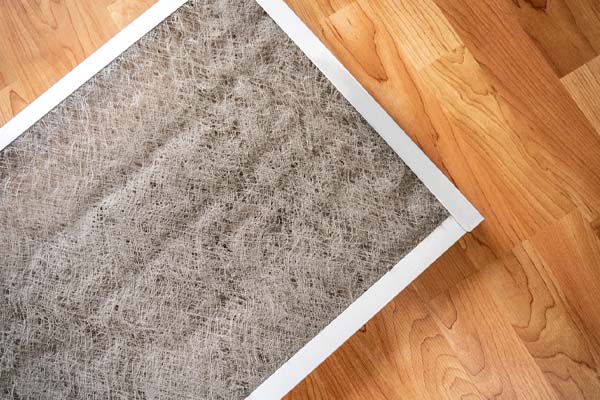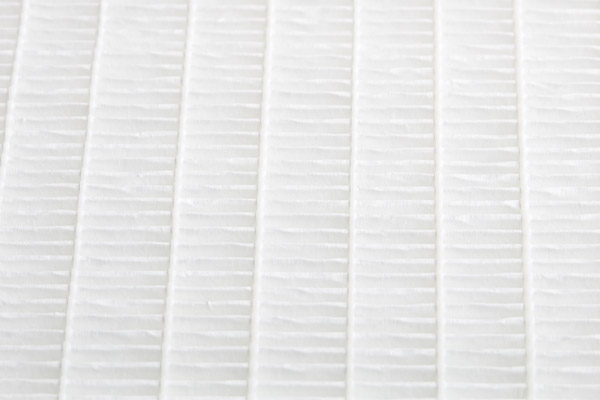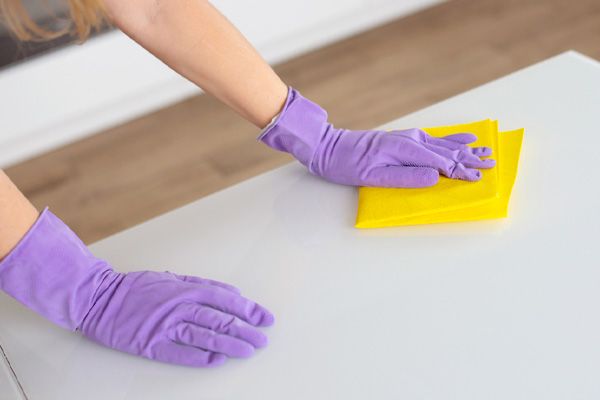HVAC Allergies: How Your HVAC System Can Limit Seasonal Allergies

Millions of Americans are affected by allergies each year. Some people suffer more than others as a result of higher levels of sensitivity and various environmental factors. If you happen to be someone who lives with allergies, then now is the time to start thinking about how you can change your living environment to increase your comfort. There’s no need to continue suffering. You can attack this issue head-on by using the right HVAC technologies and altering your habits. When you take a proactive approach to allergy prevention, you can make it through the allergy season with minimal troubles. However, if you aren’t proactive, the opposite will prove true, and your HVAC system will start working against you to cause HVAC allergies. To find out how to use your HVAC system to prevent and mitigate seasonal allergies, read on.
How to Limit Your Struggles With Seasonal Allergies This Year
Table of Contents
- 1 How to Limit Your Struggles With Seasonal Allergies This Year
- 1.1 Stay on Top of HVAC Filter Replacements
- 1.2 Upgrade Your Standard Air Filter to a HEPA Filter
- 1.3 Keep Your Indoor Surfaces Clean
- 1.4 Regularly Run Your HVAC System
- 1.5 Take Advantage of UV Light Sanitation
- 1.6 Seal Up Air Leaks at Windows, Walls, and Doors
- 1.7 Install Whole-House Humidification
- 1.8 Having Your HVAC System Professionally Cleaned and Maintained Annually
- 1.9 Conclusion
- 2 Get in Touch With Hart Home Comfort for IAQ Solutions
This article will show you how to turn your home’s HVAC system into your health ally.
Stay on Top of HVAC Filter Replacements

Your indoor air is rife with impurities that have the capacity to trigger allergy attacks and respiratory problems. These particulates aren’t always easy to see, but you may be able to pick them up visually as dust motes and more in the light that reflects off them through your windows.
HVAC systems have standard filters that are designed to capture and return dirt, dust, dander, and other contaminants within the air as it moves through them. These filters can play a hand in limiting allergies, and they also keep your home heating and cooling equipment protected.
HVAC manufacturers recommend changing HVAC air filters on a regular basis to ensure optimal airflow and to prevent blockages that will lower the efficiency of HVAC systems and shorten their lifespans. You should perform HVAC air filter changes about once every one to three months, depending upon how quickly debris builds up.
Upgrade Your Standard Air Filter to a HEPA Filter

Heaters and air conditioners come with basic air filters that are only capable of capturing fairly large-sized particulates. These filters aren’t able to remove pollen or many other micro-sized allergies due to the width of their mesh. This is because their primary purpose is to protect the interior of HVAC particulate from build-ups of debris that might cause system damage rather than protecting consumer health.
If you want more protection against allergies and other health issues, you should upgrade your standard HVAC air filter to a HEPA filter. HEPA or high-efficiency particulate air filters have a tighter mesh that’s able to collect and retain allergens so that they’re no longer being circulated throughout your indoor air. However, HEPA filters also reduce airflow. Thus, it is possible that you will need to make slight modifications to your HVAC system to ensure efficient performance. A licensed HVAC company can help you find the right upgrades for your home heating and cooling system.
Keep Your Indoor Surfaces Clean

Airborne allergens won’t drift around your living environment indefinitely. These particulates will eventually settle on indoor surfaces such as your bed, counters, flooring, desk, and more. Be diligent about wiping these surfaces down, especially in your bedroom. Avoid using brooms or feather dusters for this task, as these tools will only disturb particulates and send them back into the air. It is far better to use a powerful vacuum to collect all pollen, dirt, and dust. If you don’t have a good vacuum or if your isn’t currently working, dip a clean cloth into the water. Squeeze out all excess moisture and then use this damp cloth to wipe all hard surfaces down, as dirt will readily adhere to it. You should additionally wash your bedding once every one to two weeks.
Regularly Run Your HVAC System

Stagnant water can quickly become hazardous. It’s an attractive breeding ground for both bacteria and insects. Stagnant air can also be dangerous. If the air inside your living environment isn’t moving, there will be no way for airborne pollutants to escape. Instead, they’ll simply build and build until they reach incredibly unhealthy levels.
You can ventilate your home by turning on the air conditioner from time to time to get the indoor air moving – even if you aren’t feeling hot. This will cause the system to fresh outdoor air into your home and transfer stale, stagnant air from the building interior outside. This is something that you should do for at least 20 minutes every day.
Take Advantage of UV Light Sanitation
Ultraviolet or UV light is a powerful disinfectant. When you sun to dry your clothes, this isn’t just to evaporate the moisture that they hold via the sun’s heat. It’s also a way to eliminate harmful bacteria with UV light so that your clothing and linens are truly fresh and clean. UV light can destroy harmful pathogens at the molecular level. Thus, UV lights in a concentrated form are frequently used for water purification. Smaller UV lights can be installed in HVAC equipment to destroy pathogens and other allergens found in these environments. This way, AC units, and heaters won’t be spreading these same contaminants around homes when they’re turned on. This is a great way to give your indoor air quality (IAQ) a boost.
Seal Up Air Leaks at Windows, Walls, and Doors
You may not be able to keep pollen from entering your home by simply shutting all of your windows and doors. Many homes have gaps and cracks in their walls, along their windows, and around their doors. Check your home to see if you have any air leaks like these that are allowing unfiltered outdoor air in. If you do, use caulk, spray foam insulation, or weatherstripping to seal them up. You should additionally keep your window homes during times when the local pollen count is high, such as in the early morning.
Install Whole-House Humidification

Have your indoor humidity measured to learn more about the environmental concerns that are specific to your home. Ideal humidity levels for homes are at about 40 percent. If your living space gets too dry, allergens will remain airborne for long, and they’ll also have more chances to wreak havoc on people with chronic respiratory issues like asthma and allergies. If your home becomes too humid, mold and mildew can cause even bigger issues. Thus, whole-house humidification/dehumidification equipment could be right for you, depending on what’s necessary for restoring overall balance.
Having Your HVAC System Professionally Cleaned and Maintained Annually
Allergies are far too big of an issue to handle all by yourself. Speak with a doctor if your allergic reactions are severe or frequent. You can also work with a trusted HVAC company to improve your home’s IAQ. Schedule annual HVAC maintenance and cleaning services. These efforts will allow you to breathe much easier indoors, even as they improve the reliability and efficiency of your HVAC system.
Conclusion
Springtime is when allergy flare-ups tend to be their worst. High pollen counts and other allergens are constantly floating through the air throughout this season. Stay safe and comfortable at home by sealing your windows and doors, keeping your living environment clean and dust-free, and turning your HVAC system on for air filtration. Don’t wait to contact an HVAC company for a HEPA filter upgrade or replacement, UV lights, or other IAQ or maintenance needs. HVAC companies will do all that they can to minimize and prevent indoor allergies by increasing indoor air quality.
Get in Touch With Hart Home Comfort for IAQ Solutions
 Hart Home Comfort offers advanced IAQ solutions to residents of Nassau County, Suffolk County, and Queens, New York. We’re staffed by knowledgeable HVAC technicians and IAQ experts who can assist with all of your HVAC maintenance, repair, replacement, and improvement needs. They can help you reach your IAQ goals through proper HVAC system service and refinement.
Hart Home Comfort offers advanced IAQ solutions to residents of Nassau County, Suffolk County, and Queens, New York. We’re staffed by knowledgeable HVAC technicians and IAQ experts who can assist with all of your HVAC maintenance, repair, replacement, and improvement needs. They can help you reach your IAQ goals through proper HVAC system service and refinement.
Hart Home Comfort additionally offers some of the most competitive pricing in the region. With our maintenance services, you can enjoy improved efficiency and comfort and lower heating and cooling bills. When the time comes to replace your heater or air conditioner, we’ll assist you in finding the right model for your budget, your health needs, and your home. All of our work is backed by a solid satisfaction guarantee. Call Hart Home Comfort now to schedule a consultation. We’ll give you an onsite estimate at absolutely no charge.
For any questions about what Hart Home Comfort can do for you, give us a call today. Click here to contact us now or call us at (631) 667-3200 to find out more! Click the link to view our service area.
